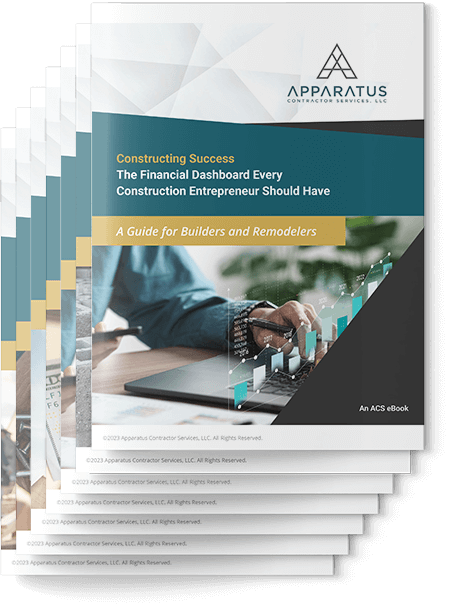Navigating the complex world of construction, with its demanding schedules and tight budgets, is no small feat. As the leader of your company, you’re juggling numerous balls. But amidst the chaos, ensuring your financial house is in order, especially regarding taxes, is non-negotiable.
If you find yourself behind on filing your taxes, don’t despair. With the right approach and guidance tailored to the construction industry, you can set things right. Here’s your actionable plan to get back on track with the IRS and ensure a smooth financial journey ahead.
STEP 1: Acknowledge & Accept
Recognize the importance of addressing this oversight. Avoidance will only lead to penalties, interest, and potential legal challenges. Remember, the IRS usually works with those who come forward willingly.
STEP 2: Gather Your Financial Records
The first step in the process is to gather all your financial records. This includes:
- Income statements
- Expense reports
- Payroll records
- Construction industry bookkeeping and accounting records
If some records are missing, consider contacting vendors, clients, or financial institutions to obtain copies of transactions.
STEP 3: Seek Expert Guidance
Hiring a tax professional, especially one familiar with the construction industry, can be a game-changer. They can:
- Help you navigate complex tax codes
- Assist in identifying potential deductions specific to construction
- Aid in preparing and filing back taxes correctly
STEP 4: Evaluate Payment Options
If you owe the IRS money, evaluate the payment options available. Depending on the amount and your financial situation, you might qualify for:
- Installment Agreement: Pay your debt over a series of monthly installments.
- Offer in Compromise: Settle your tax debt for less than the total amount you owe if you meet specific criteria.
- Temporary delay: The IRS might temporarily delay collection efforts if you face significant financial hardship.
STEP 4: Address Penalties and Interest
The IRS often assesses penalties and interest on late filings and payments. While your primary goal should be to settle the principal amount, you can also:
- Request a penalty abatement due to reasonable cause, if applicable.
- Negotiate with the IRS to reduce penalties, especially if it’s your first offense.
STEP 6: Stay Proactive Moving Forward
To avoid future hiccups:
- Invest in construction industry bookkeeping software or services to maintain accurate records.
- Set aside funds regularly to cover your tax obligations.
- Engage in quarterly tax planning sessions with a financial advisor.
- Ensure timely filing, even if you can’t pay in full immediately.
Closing Thoughts
Getting right with the IRS might seem daunting, but remember, every successful construction project requires a solid foundation. Your business’s financial foundation is no different. By addressing your tax situation proactively, you safeguard your company’s reputation and ensure smoother operations and greater peace of mind.
For more insights into the financial intricacies of the construction world, stay tuned to our blog. Let’s lay the bricks for a financially robust and compliant future together.
GET THE PROFESSIONAL BOOKKEEPING HELP YOU NEED
Apparatus Contractor Services, LLC provides affordable bookkeeping, payroll, and CFO services exclusively to construction-industry businesses. Let us give you the precision bookkeeping foundation you need to grow a remarkably profitable construction business. LEARN MORE









